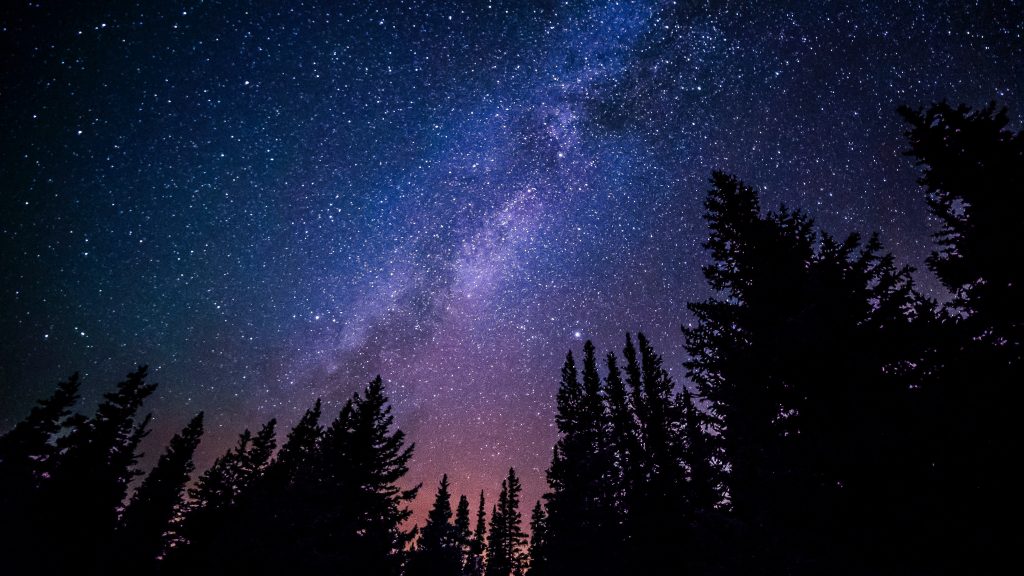By Lee Van Ham
Despite its 12,000-year story, today’s Civilization does not come with the guarantee of its survival. Creation does. Creation’s story predates modern civilization by millions of millennia and, despite Civilization’s attacks on her, Creation continues to generate resources that sustain Civilization. But that’s breaking down as Civilization is in a frenzied dash to take, but not to give and restore.
Daniel Quinn’s book, Ishmael, which features an animal teacher, convinced me to stop calling prehistory the millennia before Civilization. Earth’s story makes no break between prehistory and history. It’s all the history of Creation, a profoundly spiritual, sacred story from the ancient to now.
Accordingly, I have lost faith in spiritualities configured around Civilization’s religious structures. Instead, I’ve been tilting more and more to a spirituality of Creation. Though Civilization’s religious structures have served well at times, today they are breaking down along with Civilization itself.
My early spiritual formation centered around personal salvation, Jesus dying on the cross to save us from our sins, and what was called Christ-centered and Bible-centered faith. But the cross is no longer the primary symbol for my spirituality with one major exception—recognizing that the suffering and death delivered upon millions by Civilization’s powers is a continuing crucifixion of people and life everywhere.
Having already acknowledged Daniel Quinn, I want to pay tribute to other influencers on my years-long shift from faith to unbelief, and then how unbelief opened the way for a far more profound basis of faith.
- On a visit to the San Diego Safari Park a small bronze sign, tucked away in greenery near an animal exhibit, awakened me like a clap of thunder. It said, “Listen to the animals, they will teach you. Job 12:7.” I did not know that was in the Bible, but, like striking a match, it lit a keen interest to see Creation as a primary sacred text.
- Looking back, I know that I was a nature mystic as a boy walking in the fields, creeks, and woods of an Iowa farm. But the fundamentalist theology that shaped my boyhood never spoke of such mysticism, so I didn’t value those nature times in a spiritual way. Instead, I was taught that though Creation inspires, only the Bible can be the source for salvation. In my education mysticism with its immediacy of knowing God was sidelined by my pursuit of philosophy and rational knowing. But in midlife I went to an event keynoted by Morton Kelsey, an Episcopal priest who linked Christian faith with the psychology of Carl Jung. Jung’s mysticism, denigrated by many of his peers, handed me a flaming torch to light the path to a new spirituality of soul and Creation that was both scientific and mystical.
- While browsing the 2011 July issue of “The Agitator,” the tabloid published by the Catholic Worker House in Los Angeles, I read a review of Come Out, My People!: God’s Call out Of Empire in the Bible and Beyond, by West Howard-Brook. The reviewer, Frank Cordero, co-founder of the Des Moines Catholic Worker, glowed with praise about the book. I immediately had a heart connection to that review and knew I needed that book. Howard-Brook interprets the Bible as a dialogue (not an especially friendly one) between two religions—Empire Religion and Creation Religion. I relished reading that Genesis came together as a product of Creation Religion while Israel was in exile in Babylon, which embraced Empire Religion. Oppressed Israel heard Babylonians proudly tell their origin story, Enuma Elish, telling how their empire was established by the will of the gods—the same gods who created humans out of violent struggle. Israel wasn’t having it. They knew YHWH was different. They put Genesis together in protest. Centuries later, Jesus lived Creation Religion and completely rejected Empire Religion. He “called out” people to do the same, to leave superpowers and empires to live in the Way of Creation.
Photo by Ryan Hutton on Unsplash






